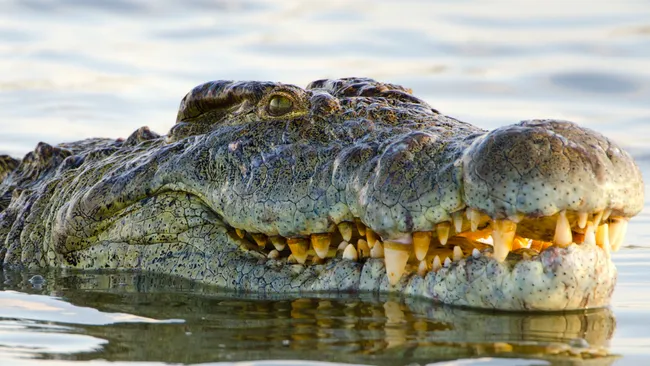World’s Oldest Known Crocodile, Henry, Turns 124
Today (Dec. 16), Henry, the world’s oldest known Nile crocodile (Crocodylus niloticus), celebrates his 124th birthday at the Crocworld Conservation Centre in Scottburgh, South Africa. Captured in Botswana’s Okavango Delta in 1903, Henry has lived at the center since 1985 and is credited with fathering over 10,000 offspring during his long life.
Why Crocodiles Live So Long
Reptiles, including crocodiles, are renowned for their impressive longevity. Biologist Steven Austad notes that an age of 124 is plausible for a crocodile like Henry. Several factors contribute to this:
- Cold-Blooded Metabolism: As ectothermic animals, crocodiles rely on external heat to regulate their body temperature. This allows them to conserve energy and age more slowly than warm-blooded creatures. A crocodile Henry’s size (16.4 feet, 1,540 pounds) needs just 4% of the food intake of a mammal of equivalent mass.
- Continuous Growth: Unlike many other animals, crocodiles grow throughout their lives. Henry’s massive size keeps him safe from predators, increasing his survival chances as he ages.
- Robust Biology: Nile crocodiles may benefit from unique biological traits, including proteins in their blood with antibacterial properties and gut microbiomes that strengthen their immune systems.
- Captive Environment: Life at Crocworld ensures Henry is safe from accidents, predators, and disease, while also providing consistent food and care.
Challenges in Studying Crocodile Longevity
Understanding why crocodiles live so long is difficult, as scientists would need to monitor them from birth through their entire lifespan, a process spanning over a century. Many theories, such as the role of their microbiome and immune system, remain speculative.
A Legacy to Celebrate
Henry’s annual birthday celebration honors not only his extraordinary lifespan but also the fascinating resilience and biology of crocodiles. As Austad aptly notes, “[Crocodiles] live longer than the careers of the scientists studying them,” making Henry a living testament to the mysteries of reptilian aging.
